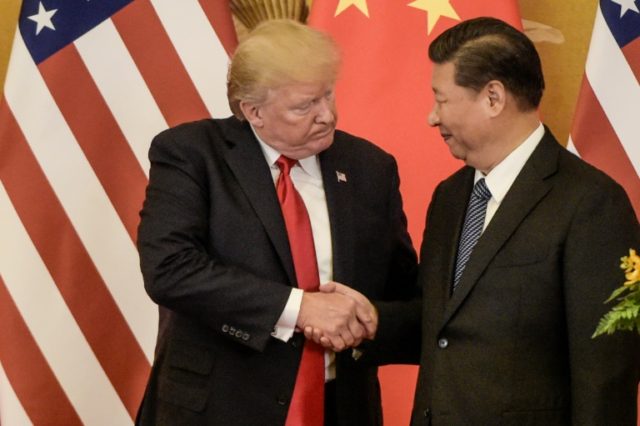China has signaled significant changes to its top diplomatic lineup due to growing tensions with the Trump administration over trade issues and intellectual property theft.
The changes also appear consistent with President Xi Jinping’s effort to consolidate power by installing friends and loyalists in important positions.
Reuters cites “several sources,” including some foreign diplomats, who said a big shakeup in China’s diplomatic corps is expected at the annual parliamentary meeting in March. One change that sounds like a done deal is installing Xi’s “close ally” Wang Qishan as “vice president with a portfolio specifically focused on handling ties with Washington.”
Wang has a reputation as a “firefighter” who specializes in tackling corruption and financial issues, plus experience in dealing with the U.S. through a previous stint as vice premier. He has also been a key player in Xi’s consolidation of power over the Communist Party, which is more like an organ of state power than a “political party” in the Western sense of the term. Wang was obliged to retire from the Party Standing Committee in October due to reaching the nominal age limit, leaving him with great prestige as an elder statesman.
“Wang Qishan is a heavyweight, and the Americans respect him. Hopefully he will be able to temper American hostility,” said one of Reuters’ sources.
The goal is to create a triumvirate of top diplomats with a “focus” on the United States, plus strong ties to Xi’s office and the Chinese legislature. The various promotions and lateral transfers involved in the diplomatic reshuffle will also give Xi an opportunity to reward loyalists and tighten his grip on major government institutions.
Reuters stresses that some of the appointments are speculative, plans could be changed at the last moment, and none of the sources were authorized to speak on the record with foreign media.
The South China Morning Post reported on Wednesday that Xi dispatched his most trusted economic adviser, Office of the Central Leading Group for Financial and Economic Affairs director Liu He, to Washington after China’s current top diplomat, State Councilor Yang Jiechi, was unable to resolve trade disputes with the United States.
A source told the SCMP that Yang’s visit “didn’t seem to accomplish anything,” so now Liu He is coming to the table with the authority to make potentially greater trade concessions. Liu’s presence is also meant to signal to the U.S. that China takes trade disputes seriously, as he will evidently be missing at least one important meeting of the Communist Party Central Committee and the beginning of China’s legislative session while he is visiting Washington.
China is said to be particularly “dissatisfied” with the U.S. Commerce Department’s anti-dumping decision against Chinese aluminum foil. In what appears to be a response to the U.S. decision, China’s Ministry of Commerce launched an investigation into U.S. sorghum imports, prompting fears that the first shots in a trade war may have been exchanged.
The Reuters article mentions that State Councillor Yang is seen as something of a disappointment in Beijing for failing to make any major breakthroughs with the Trump administration, so he will be moved into a position with less of an emphasis on the United States. Yang is now a member of the Politburo, so his move will not be seen as a punishment or demotion.
In an op-ed published by the South China Morning Post on Tuesday, Douglas H. Paal said Xi’s foreign policy objectives are to strengthen the “traditionally weak” Ministry of Foreign Affairs and remind the world that growing military power lies behind Chinese diplomacy.
“In other words, China’s neighbors are welcome to have constructive relations with Beijing but they need to remember they are not dealing with the weak China of the past. China’s velvet glove of diplomacy covers an iron fist,” Paal writes, noting that China’s gunboat diplomacy involves a growing number of actual gunboats sailing into disputed waters and hovering off the coast of trouble spots like the Maldives, which undergoing a power struggle between pro-China and pro-India forces.
From that perspective, settling disputes with the U.S.—or perhaps exacerbating trade disputes that come to dominate Washington’s relationship with Beijing—might give China more latitude to shove the smaller nations of the Pacific Rim around, a problem Paal recommends they address by banding together and dealing with China collectively.

COMMENTS
Please let us know if you're having issues with commenting.